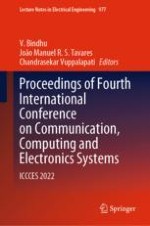2023 | OriginalPaper | Chapter
A Review on the Impact of Cognitive Factors in Introductory Programming
Authors : Amanpreet Kaur, Kuljit Kaur Chahal
Published in: Proceedings of Fourth International Conference on Communication, Computing and Electronics Systems
Publisher: Springer Nature Singapore
Activate our intelligent search to find suitable subject content or patents.
Select sections of text to find matching patents with Artificial Intelligence. powered by
Select sections of text to find additional relevant content using AI-assisted search. powered by
